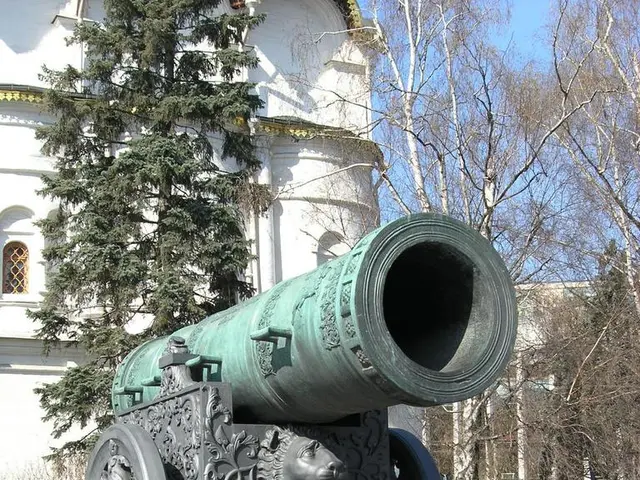International cities of Paris, Berlin, and London declare their readiness to reinstate economic penalties against Iran due to the failure of diplomatic negotiations concerning its nuclear development program
The delicate state of negotiations surrounding Iran's nuclear program continues to evolve, marked by recent developments and lingering uncertainties.
Following the Israeli and American strikes on Iranian nuclear sites in June, Iran suspended its cooperation with the International Atomic Energy Agency (IAEA). However, after a brief pause, Iran has resumed some contact with the agency, with the IAEA deputy director visiting Tehran on August 11 to discuss a new framework for cooperation. While no nuclear site inspections are currently planned, this move signifies Tehran’s willingness to ease tensions and potentially resume negotiations with the international community [2].
Iran has imposed legislative restrictions on its cooperation with the IAEA, passing a law that prohibits full cooperation until guarantees are met regarding national sovereignty and security of its nuclear facilities. This move reflects deep mistrust of the agency and concerns about Israel’s access to information. Iran maintains its commitment to the Non-Proliferation Treaty (NPT) but demands respect for its rights under the treaty, such as domestic enrichment [4].
The U.S., under the influence of former President Trump, insists on a tougher stance, demanding the complete dismantlement of Iran’s nuclear program before engaging in any negotiations. The Trump administration's special envoy is reportedly preparing new talks with Iran, potentially including European partners, aiming to prevent the expiration of the UN sanctions "snapback" mechanism. However, these talks would require Iran meeting strict preconditions, moving beyond previous incremental approaches [1].
The negotiations between Tehran and the E3 (Germany, the UK, and France) have been at a standstill for two months. In response to a lack of a negotiated solution on the Iranian nuclear program by the end of August 2025 or a missed opportunity for an extension, the three foreign ministers have stated their readiness to trigger the mechanism for reimposing sanctions against Iran. This move, if executed, would reimpose international sanctions against the Tehran regime, lifted under the Vienna agreement [3].
However, Iranian Foreign Minister Abbas Araghchi sent a letter to the UN last month claiming the E3 had no legitimacy to restart the sanctions mechanism. This claim has since been deemed "unfounded" by the German, British, and French ministers [6].
The situation remains fragile, with ongoing tensions and negotiation efforts framed by recent military confrontations and deep mistrust. Diplomatic efforts continue, but face significant hurdles as Iran refuses inspections and the U.S. demands total nuclear dismantlement [2][5].
The cost and security benefits of Iran's nuclear program are a subject of debate within the country amid sustained international pressure [3]. The foreign ministers will continue their exchanges in order to reach a negotiated solution, expressing their commitment to a diplomatic solution to the crisis caused by the Iranian nuclear program [6].
- Amidst the ongoing negotiations over Iran's nuclear program, France is actively involved in the politics, actively participating in the discussions with the E3 (Germany, the UK, and France).
- The war-and-conflicts and policy-and-legislation surrounding Iran's nuclear program are heavily influenced by general news, with the latest developments showcasing the mistrust among Iran and other international parties, including the IAEA and the U.S.







